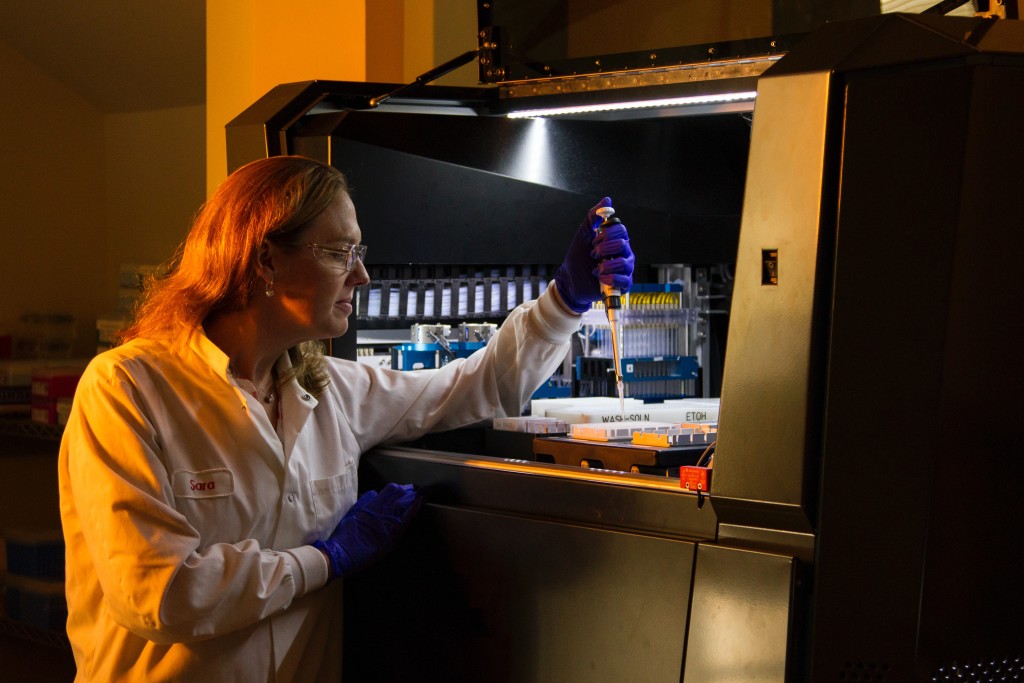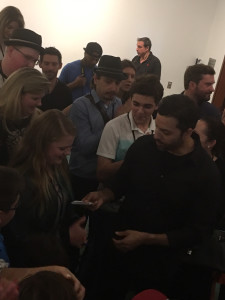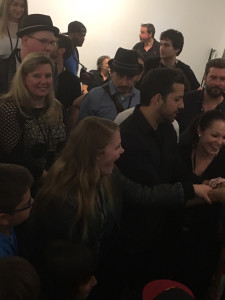“Politics” & 8 Gutsy Kids
An Update on Florida’s Historic Youth Climate Lawsuit Reynolds v. State of Florida
South Florida and many other places all around this unique, fragile peninsula that is the State of Florida are at dire risk to becoming lost, of becoming extinct and inaccessible, as a result of man-made climate change and its resulting sea rise. Local municipalities are increasingly, openly now acknowledging this reality and their own limitations to save a growing portion of their communities by using words such as “retreat” to describe the reality of our future unless we move quickly to stop the fossil fuel use that’s at the heart of climate change. In fact, local cities, towns and counties all over Florida have begun to publicly discuss that they are fighting a losing battle without help from the State of Florida, America and the world beyond.
And yet, State leaders such as Governor DeSantis, Agriculture Commissioner Fried, CFO Patronis, Attorney General Moody do nothing more than play politics in a process that spins around and around without change while protecting the polluters that are causing and perpetuating the damage. Make no mistake, for generations Florida’s elected officials have been played by industries intent on protecting their profits and in the process use and sell fossil fuels that are the core cause of the problem and until this changes, the damage will only grow worse by the day until the day comes that millions can’t get to their homes, businesses or special places all around us because no one in power truly cared to demand change.
And so as to remove the very politics that are the problem, seven young “gutsy”, as my friend Dick Jacob’s likes to call us, friends of mine and I have done something ridiculous and remarkable by suing the State of Florida and its elected Cabinet.
Ridiculous because we can surely agree that children and young adults should not feel forced to fight so hard for their future and that of future generations by having to file a lawsuit against the very state they live in to demand that their government enforce laws designed to protect them and their environment.
Remarkable because generations of adults before us, much less too many in positions of power today, gladly extend their hands out to the polluters, their lobbyists and the money so as to play THE key role in perpetuating the problem. I mean how else can you explain someone, anyone, supporting the use of something so filthy, that smells so bad and that is so lethal to any living creature as petroleum rather than cry out for a better energy solution in a world that’s now filled with better energy solutions, unless it were greed and politics?
And yet, what does a Judge appointed by one of the all-time climate deniers ever, former governor/now US Senator Rick Scott, conclude when the state not surprisingly asks him to deny our lawsuit?
He suggests we need a political solution.
Of course the abate failure of Florida’s political system, its elected politicians corrupted by political donations and the army of fossil fuel energy and utility industry political lobbyists feverishly working to protect their clients are a large part of the reason why such a fragile place as Florida has such a dire problem. And yet that’s what Judge Carroll suggested we need. More of the same political B.S. that has caused the problem.
Needless to say my friends and I do not agree with the Judge’s view, nor will we allow it to slow our desire to fix the problem. When I first thought to pursue a solution through the court system I knew that the process would be a long one filled with many challenges but I also knew that the stakes were too important to not seek the learned help of our judiciary. I knew that I likely faced years, perhaps decades, of my life pursing a legal remedy, the changes that we need, and thus I remain as dedicated to the cause, perhaps more so, than ever before despite Judge Carroll’s opinion.
With that in mind, I’d like to give you an update on our recent Hearing and next steps; first in a brief video of my own thoughts followed by a guest blog from my friend Dick Jacobs, a Florida lawyer for more than 50 years who will eloquently detail why he feels that the Judge is wrong to think that this is a political issue (it’s not). I’ve ended the post with a video in which many of my co-plaintiff’s share their views and a few thought provoking questions I hope you will consider.
After a three-hour “Zoom” video-conference hearing, Judge Carroll said his decision was based on the fact that the kids were asking the court to solve our climate crisis, which is the responsibility of the legislature and the executive branch. Carroll said “This is not a matter for the court. I regret to have to tell you this. I don’t want anyone to thing I am diminishing what [the kids] concerns are. I think they’re legitimate.” The judge said he would write his ruling so that it is ripe for appeal. He wished the children luck.
The legal technicality underlying the Judge’s opinion is known as the “Political Question Doctrine,” which Black’s Law Dictionary defines as “A question that a court will not consider because it involves the exercise of discretionary power by the executive or legislative branch of government.”
Debates as to what the Constitution means, and whether or not there are “political questions,” are not something new. The debates have been around since the days of the Founders. Perhaps the most famous early controversy about the Court’s authority was between John Marshall, appointed as Chief Justice in 1801 by John Adams just before he left office, and our third President Thomas Jefferson (1801-1809). In the 1803 case of Marbury v. Madison, Marshall’s Court opined that the Supreme Court had the right to decide if federal or state laws violated the Constitution. Marbury and subsequent Marshall decisions (his Court decided more than 1,000 cases in his 35 years, with Marshall writing half of the opinions) firmly established the idea that the Federal judiciary system was independent and co-equal in responsibility to the executive and legislative branches. Jefferson disagreed with Marbury and the role of the Court, seeing it as less consequential. Jefferson’s idea was that the Court’s authority to overturn laws conflicted with the peoples’ right to rule. (Jefferson, however, was not faced with the politics of today’s Democracy of Dollars, where the influence of lobbyists, not the people, prevails.)
Over the years the debate about the role of the Supreme Court has continued. Archibald Cox wrote in 1967, in his The Warren Court (the Court when I was in law school, 1964-67):
What role should the judicial branch play in the government of American people? Should the court play an active, creative role in shaping our destiny, equal with the executive and legislative branches? Or should it be characterized by self-restraint, deferring to the legislative branch whenever there is room for policy judgment and leaving new departures to the initiative of others? Under Marshall the court staked an active role in government, building up the power of the federal judiciary in shaping the relationship between the nation and the states according to Marshall’s nationalism. … [In reaction to judicial activism], there developed the theory of judicial self-restraint with which the senior generation of lawyers was generally indoctrinated. The theory sprang from the soil of the old Jeffersonian philosophy…: ‘You must seek correction through the political process, for the judiciary to intervene would be a denial of self-government.’”
As Cox points out, when it comes to fundamental Constitutional, human rights, judicial restraint is too frequently a “no answer,” for the restraint “closes the political process to particular ideas or particular groups, or otherwise distorts its operation. Then the correction must come from outside and no violence is done to the principle of representative government if the court supplies the remedy.”
“Ideally, the federal judicial branch ought not to enlarge its own jurisdiction simply because Congress and the state governments failed to solve the problem confided in them….The ideal remedy is to reform the delinquents. But government is more pragmatic than ideal. In a practical world there is, and I suspect has to be, a good deal of play in the joints. If one arm of government cannot or will not solve an insistent problem, the pressure falls on another.”
Examples:
• Our Constitutional right to “privacy,” always important, but more important in this age of electronic intrusions, was found by the Warren Court in the “penumbra” of rights surrounding the Constitution, not in the Constitution itself. The late Justice Scalia has written that because the words aren’t in the Constitution, we have no Constitutional right of privacy. I am sure very few of us would agree with Scalia. I discuss the issue in detail in an earlier blog: Belief Checker.
• Florida’s Constitution, Article II, Section 7(b), adopted in 1996, provides: “Those in the Everglades Agricultural Area who cause water pollution within the Everglades Protection Area or the Everglades Agricultural Area shall be primarily responsible for paying the costs of the abatement of that pollution.” The Florida Supreme Court opined that the provision is not “self-executing” and requires legislative action to be enforceable. With the exception of a 2020 bill dealing with algae pollution of Florida’s waters, the Florida legislature has never acted, and taxpayers, not the polluters, are stuck with the cost.
• Floridians amended Florida’s Constitution to restore felons’ voting rights. The Florida legislature passed a law that prohibited voting by felons unless all their applicable court costs were first paid. The law was challenged in the Federal Court as being unconstitutional. The judge withheld action while the legislature was in session so that it would have time to act; when the legislature didn’t act, the judge ruled: “[T]his order holds that the State can condition voting on payment of fines and restitution that a person is able to pay but cannot condition voting on payment of amounts a person is unable to pay or on payment of taxes, even those labeled fees or costs.” The judge also said:
“Why is it that all the Republicans voted ‘yes’ and all the Democrats voted ‘no’? That is not a coincidence. It would be stunning if somebody told me that they did not realize that African-Americans tend to vote Democratic more than Republican.”
The judge did it right: he waited for legislative action; when none came, the political issue was subordinated to fundamental rights and the wish of the people, reflected in a Constitutional Amendment overwhelmingly approved.
The assumption of the Defendants in Reynolds v. State, the case of the 8 Gutsy Kids, is that even with the evidence presented about climate change and its harm and dangers to the Kids (essentially confirmed by the Judge in his remarks), the Legislature has the right to ignore the evidence, or decide that other matters weigh against addressing the evidence. That position assumes that our children have absolutely no fundamental or constitutional right to life and liberty – and to a climate system that is not polluted with the effects of CO2. From one of the Defendant’s briefs:
“Moreover, even with compelling evidence that there is anthropogenic climate change, the Legislature may decide that other matters, such as employment opportunities, resource development, or power generation, should be weighed against the evidence.”
After an intense study of the Political Question Doctrine, I conclude:
The political questions that should be addressed by our judicial system include at least individual rights that are Constitutional, fundamental, inherent to life itself, and are not addressed by, or are abused by, the legislature or executive branches.
How many deaths or cancer cases from CO2 pollution are permissible before a political question about our climate system is no longer a political question?
Nor should the legislature or executive branch be entitled to decide that it’s okay to continue to pollute our waters or soil with chemicals that destroy the ability of life to obtain clean water and food.
How many people are permitted to die or become diseased from lead poisoning before the right to pollute with lead poison is no longer a political question?
Nor should the legislature or executive branch be entitled to take action – or ignore taking action – that causes vast portions of the entire state to be submerged under rising seas.
How many people must lose their homes, their businesses or their lives – or how many communities must lose their tax base based on sunken lands, fleeing tourists, and flooded businesses that no longer operate – because of rising seas before rising seas is no longer a political question?
The fact that the Gutsy Kids claim to a stable climate system isn’t word-specific in the Constitution, or requires executive or legislative action to fill in the details of implementation, doesn’t mean a righteous claim to a stable climate system does not exist, or that the Court cannot act. Like the right to privacy, the unspecified rights to a stable climate system lie in implication of the words of the Constitution and, like privacy, are in its penumbra. The Court can act as it did in Brown V. Board of Education of Topeka, Kansas, where the Court took charge in declaring what the Constitution required and ordered the political branches to reform policies that had championed discriminatory education of black children and other minorities.
Either we have fundamental rights or we don’t. For those fundamental rights the legislature does not have the right to compromise or destroy or limit them; the Executive Branch does not have rule-making authority to deprive us of those rights. Those rights clearly have political implications but are not political questions which courts cannot hear and resolve when the legislature and executive branch are engaged in damaging action or inaction. They are absolute, essential for life itself.
Take Article II, Section 7(a) of the Florida Constitution: “It shall be the policy of the state to conserve and protect its natural resources and scenic beauty. Adequate provision shall be made by law for the abatement of air and water pollution and of excessive and unnecessary noise and for the conservation and protection of natural resources.”
Now, 7(a) is a statement of pure policy, and it obviously require legislative action. However, this policy speaks of “shall” – requiring positive action. That means something is to be done within the boundaries of its expressed concern by the Florida legislature; yet there has been totally inadequate legislative action. Should not the citizens of Florida, who enacted the Constitution for their benefit, have the right to petition the judiciary to order the legislative branch to perform its constitutional duties? Listen to the 3-minute video introducing this blog. That is a prime concern of the Gutsy Kids.
To breathe life into the Constitution, inaction – a “no” answer- should not be constitutional when the Constitution uses “shall.”
Inaction is anti-shall action and should not be permitted.
Jane Goodall’s statement, “We are each difference makers and we have to decide what kind of a difference we want to make” reminds me of the fact that doing nothing is a form of difference making.
There is no reason for the Court to hide behind a political question argument when faced with these sorts of questions about human rights. What is called for is action consistent with the mandate of the Constitution. Doing nothing is not Constitutionally permissible.
CLICK ON THE PHOTO BELOW TO LINK TO OUR 3-MINUTE VIDEO ABOUT WHAT EIGHT GUTSY KIDS ARE DOING AND WHY.
Dick Jacobs








